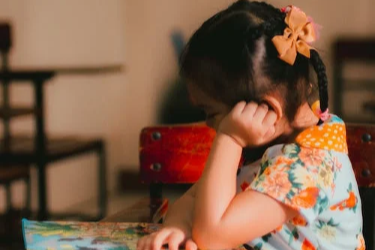
Why non-fiction reading is important
In our research, more than half (56%) of children and young people told us that they read non-fiction. We also found that children and young people who read non-fiction are more engaged with environmental issues.
Overall, this report found that more children and young people who read non-fiction were motivated to read for educational purposes, to satisfy curiosities, to foster social connections and to support their mental wellbeing.
Read the full report on Children and young people's non-fiction reading.
Those who read non-fiction are more likely to want to take care of the environment compared with those who don't read non-fiction (68% vs 49%).
Celebrate Non-Fiction November
What is National Non-Fiction November?
Non-Fiction November is an annual celebration that was created by the Federation of Children’s Book Groups. Its aim to highlight the joy and value of factual reading for young readers and beyond.
In 2025, the theme was ‘Past Puzzles and Timeless Treasures’, which invited pupils to explore history, archaeology, legends and the evolution of places and objects over time. Find out more about Non-Fiction November.
Why celebrate National Non-Fiction November in your school or setting?
As our research demonstrates, providing pupils with the opportunity to read and explore non-fiction plays a vital role in helping them to learn about their world, as well as fostering reading for pleasure. It is therefore essential that pupils have access to a high-quality and engaging non-fiction collection.
Our resources are designed to help you explore non-fiction with your class, and celebrate the different perspectives and enjoyment it brings.
We'll be providing fresh resources for Non-Fiction November 2026, but for now, please explore the support we offered last year.
Teaching resources and reading recommendations for Non-Fiction November 2025
Flexible non-fiction reading resource for ages 4 to 16
This ready-to-use resource is designed to support pupils aged 4 to 16 in exploring how non-fiction reading can spark meaningful connections across topics. With age-appropriate suggestions and adaptations included, you can easily tailor the session to suit the developmental stage and interests of your class.
There’s no fixed delivery time, this session is intentionally flexible. You might choose to run it as a full hour-long activity or break it into shorter 20-minute segments during tutor time. The format is adaptable to fit your schedule and teaching style.
Whether you're introducing a new topic, launching a research project or supporting revision and study, this resource offers a practical and engaging way to get pupils thinking critically and creatively.
Resources include:
- A flexible and fun non-fiction reading-based activity (with a modelled example)
- An activity sheet
- Suggestions of how the resource can be adapted for different age groups
- Ideas for recommended booklists
These resources are free to download from the file list below.
Non-fiction in the Early Years
For early years settings, we've provided a guidance document outlining the benefits of using non-fiction books and texts, alongside suggestions for how to review and enhance your current provision and use of non-fiction books. Plus, a booklist that focuses on this year's theme of Past Puzzles and Timeless Treasures. Download from the file list below.
Premium non-fiction resources
If you hold premium, whole-school membership, check out these further resources for exploring non-fiction this November: